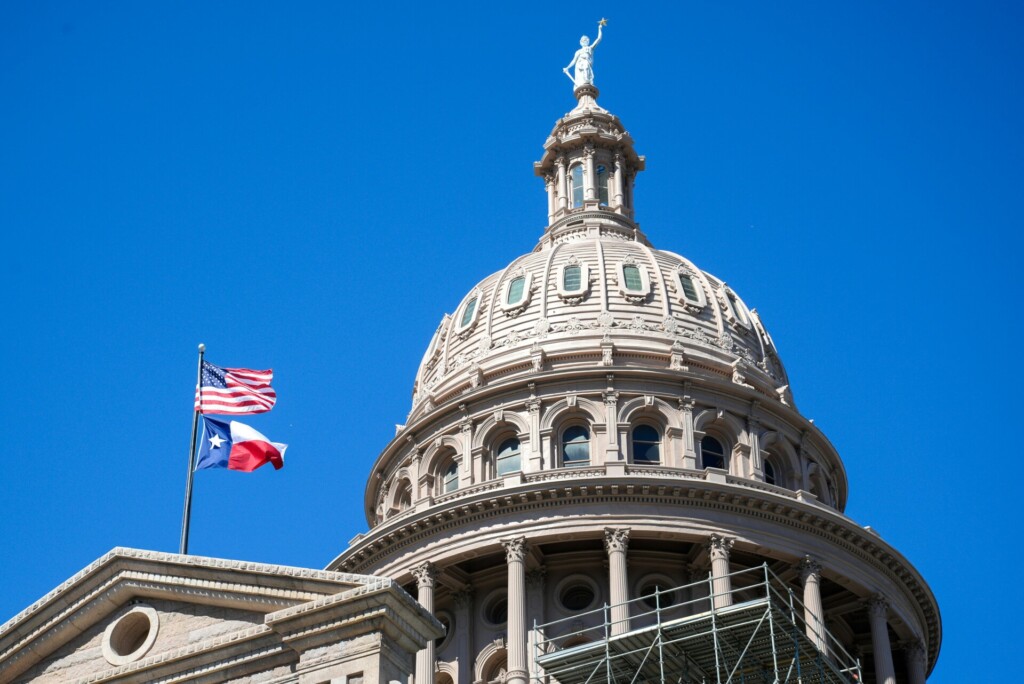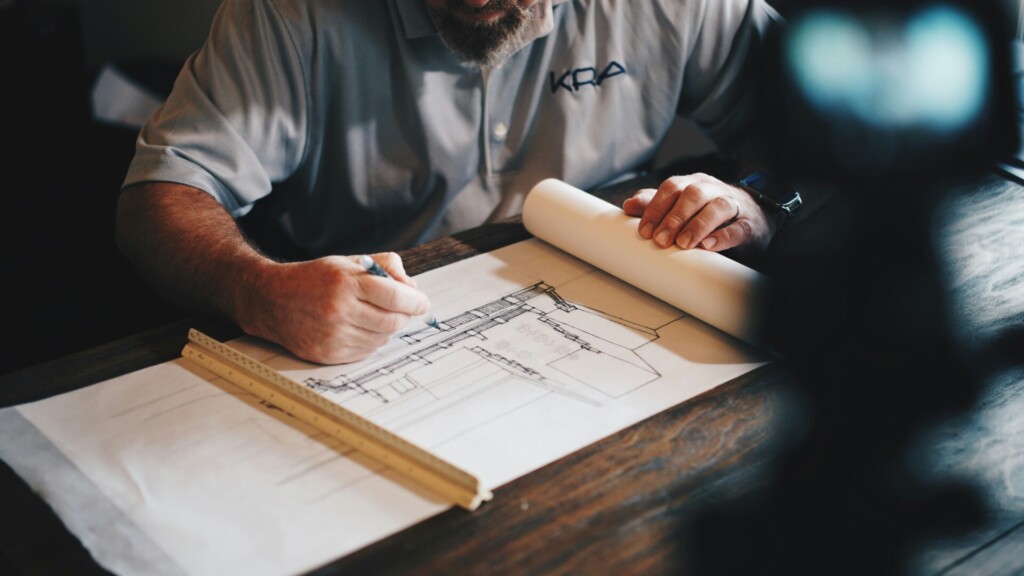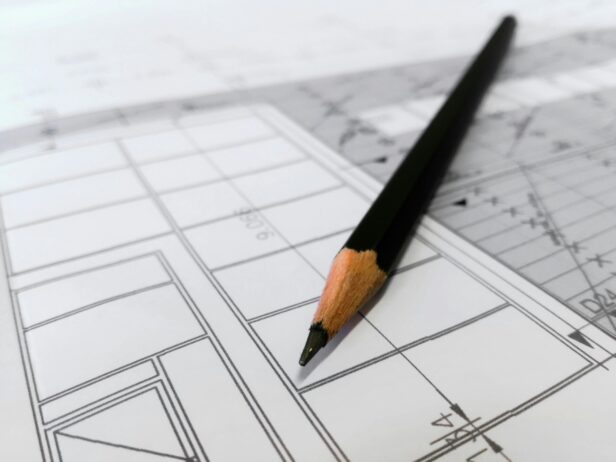At EB3 Construction, we’ve built our reputation on knowing the codes—inside and out. Whether we’re breaking ground on a new commercial development or renovating an existing structure, staying current with Texas building regulations is a fundamental part of how we deliver safe, compliant, and high-performing projects.
With the recent adoption of updated building codes across the state, we’re helping clients navigate what these changes mean for their timelines, budgets, and overall design strategies. From structural integrity and energy efficiency to HVAC, plumbing, and accessibility, each update brings new considerations to the table—and we make sure nothing is overlooked.
In this article, we’ll walk you through the key building codes now in effect in Texas, how local jurisdictions enforce them, and what you need to know to stay compliant.
What Is the Texas Commercial Building Code?

As general contractors, we closely follow the code adoption process overseen by the Texas Industrialized Building Code Council. This body plays a crucial role in updating construction standards across the state to reflect evolving best practices and safety considerations. In November 2023, the Council made a significant step by approving the adoption of newer editions of mandatory building codes—a decision formally ratified by the Texas Commission of Licensing and Regulation in May 2024.
The updated codes that we now incorporate into our projects include:
- International Building Code (2021 Edition)
- International Fuel Gas Code (2021)
- International Mechanical Code (2021)
- International Plumbing Code (2021)
- International Energy Conservation Code (2015)
- National Electrical Code (2020)
- International Existing Building Code (2021)
These revised standards took effect on July 1, 2024, marking an important transition in construction practices. As builders, we ensure that all projects breaking ground after this date fully comply with these new code editions. This commitment to staying current with regulatory changes allows us to deliver structures that meet the highest standards of safety, efficiency, and sustainability.
The code adoption process reflects a collaborative effort between regulatory bodies and industry professionals. We participate in this ongoing dialogue, providing practical insights from the field to help shape regulations that are both effective and implementable. By staying actively engaged with these updates, we position ourselves to seamlessly integrate new requirements into our construction methodologies, minimizing disruptions while maximizing the benefits of improved building standards.
For property owners and developers, understanding this process is key to planning successful projects. We guide our clients through the implications of code updates, ensuring that designs and budgets align with current regulations. This proactive approach helps prevent costly revisions and delays, streamlining the path from concept to completion.
| Code | Edition | Effective Date | Notes |
|---|---|---|---|
| International Building Code (IBC) | 2021 | July 1, 2024 | Applies to structural integrity and safety standards |
| International Fuel Gas Code (IFGC) | 2021 | July 1, 2024 | Regulates fuel gas systems |
| International Mechanical Code (IMC) | 2021 | July 1, 2024 | Governs HVAC systems |
| International Plumbing Code (IPC) | 2021 | July 1, 2024 | Standards for plumbing systems |
| International Energy Conservation Code (IECC) | 2015 | July 1, 2024 | Energy efficiency standards |
| National Electrical Code (NEC) | 2020 | July 1, 2024 | Electrical safety standards |
| International Existing Building Code (IEBC) | 2021 | July 1, 2024 | Applies to building alterations |
What Key Codes Govern Commercial Construction in Texas?
Commercial construction in Texas is regulated by several interconnected codes that address specific aspects of building safety and functionality. As general contractors, we strive to ensure compliance with these codes throughout the design and construction process:
International Building Code (IBC)
The IBC serves as the primary commercial building code in Texas. It provides comprehensive guidelines for structural integrity, fire protection, accessibility, and general safety standards. During project development, the IBC forms the foundation for many of our design and material decisions.
Specialized System Codes
In addition to the IBC, several specialized codes govern particular building systems:
- International Mechanical Code (IMC): Covers HVAC systems, ventilation requirements, and other mechanical aspects. Our HVAC subcontractors rely on this code when designing and installing climate control systems.
- International Plumbing Code (IPC): Establishes standards for plumbing systems, including water supply, drainage, and sanitation. We ensure our plumbing designs and installations align with IPC requirements.
- International Fuel Gas Code (IFGC): Governs the installation and maintenance of fuel gas piping systems, gas appliances, and related accessories. This is crucial for projects involving natural gas or propane systems.
- National Electrical Code (NEC): Regulates the installation of electrical wiring and equipment. Our electrical subcontractors adhere to NEC standards to ensure safe and reliable power systems.
- International Energy Conservation Code (IECC): Addresses energy efficiency in commercial buildings. We incorporate IECC standards into our envelope designs, lighting plans, and mechanical system specifications.
Existing Building Renovations
For renovation projects, we also consider the International Existing Building Code (IEBC). This code provides guidance on how to apply modern safety standards to older structures while maintaining their architectural integrity.
Code Compliance Challenges
Navigating these interconnected codes can be complex, particularly when local amendments come into play. We collaborate closely with local building officials to ensure our interpretations align with their expectations. In some cases, we may need to seek variances or alternative compliance paths to address unique project challenges while still meeting the intent of the codes.
| Code | Primary Focus Areas |
|---|---|
| International Building Code (IBC) | Structural integrity, fire protection, accessibility, general safety standards |
| International Mechanical Code (IMC) | HVAC systems, ventilation requirements |
| International Plumbing Code (IPC) | Water supply, drainage, sanitation |
| International Fuel Gas Code (IFGC) | Fuel gas piping systems, gas appliances, accessories |
| National Electrical Code (NEC) | Electrical wiring installation, safety standards |
| International Energy Conservation Code (IECC) | Energy efficiency in building envelopes, lighting, mechanical systems |
| International Existing Building Code (IEBC) | Modern safety standards for renovations of older structures |
By staying current with these codes and their updates, we can design and construct commercial buildings that are safe, efficient, and compliant with all relevant regulations. Our expertise in code interpretation and application is a key part of the value we bring to every commercial project.
How Do Local Jurisdictions Enforce the Texas Commercial Building Code?

As a general contractor operating across Texas, we have learned that building code enforcement occurs mainly at the local level due to the state’s home rule status. While Texas sets minimum standards through international codes, municipalities and counties have significant latitude in implementing and enforcing these regulations.
The decentralized nature of code enforcement in Texas creates a complex landscape that we must navigate carefully on every project. Here is how the system typically works:
Local Adoption and Amendment of Codes
Cities and counties in Texas can adopt their own versions of the International Building Code (IBC) and make local amendments to fit their specific needs. For example, we have seen Houston implement flood-resistant construction requirements that go beyond the base IBC provisions, based on their experiences with severe weather events. These local modifications mean we must thoroughly review local ordinances for each jurisdiction where we build.
Variations in Enforcement Capacity
The resources and approaches to code enforcement vary widely across Texas municipalities:
- Larger cities like Dallas and Austin typically maintain robust building departments with specialized inspectors for structural, electrical, mechanical, and plumbing systems.
- Smaller communities may rely on third-party inspection firms or county resources to handle code enforcement.
- Some municipalities with limited resources may practice selective enforcement, focusing on critical safety issues.
This variation means our project managers must adapt their compliance strategies based on the specific jurisdiction overseeing each build.
Permitting and Inspection Processes
Most cities require building permits before construction begins, though the specific documentation needed can differ significantly between jurisdictions. We have found that maintaining strong relationships with local code officials and engaging them early in the design process helps streamline permitting and avoid costly delays.
During construction, local inspectors typically conduct site visits at key stages to verify compliance with adopted codes. The frequency and depth of these inspections can vary based on the municipality’s resources and the complexity of the project.
Enforcement Mechanisms
Local authorities have several tools at their disposal to ensure code compliance:
- Issuing stop-work orders for violations discovered during construction
- Withholding certificates of occupancy until all code requirements are met
- Imposing fines or penalties for non-compliance
- In some cases, pursuing legal action against persistent violators
As builders, we prioritize code compliance from the outset to avoid these punitive measures and maintain positive relationships with local officials.
Special Requirements for Certain Cities
State law mandates that cities with populations over 5,000 must adopt a plumbing code and employ or contract with a licensed plumbing inspector. This creates an additional layer of oversight in many urban and suburban areas where we work.
Energy Code Considerations
Texas law places stricter limitations on local amendments to energy conservation codes in non-attainment areas, which are those not meeting federal air quality standards. This impacts our approach to projects in major metropolitan regions, where we must adhere closely to state-mandated energy efficiency standards.
Practical Implications for Construction Projects
The localized nature of code enforcement in Texas means that our teams must:
- Conduct thorough research on local code amendments and enforcement practices before beginning design work
- Build relationships with code officials in each jurisdiction where we operate
- Maintain detailed documentation of applicable codes for each project
- Train our staff on the nuances of different local requirements
- Factor potential variations in inspection timelines and processes into project schedules
By understanding and adapting to the local enforcement landscape, we ensure our projects meet or exceed all applicable code requirements, protecting both our clients’ investments and the safety of building occupants.
For anyone planning a construction project in Texas, we strongly recommend consulting with local building departments early in the process. Their guidance on specific code requirements and enforcement practices in your area is invaluable for ensuring a smooth path to compliance.
Conclusion: Navigating Texas Commercial Building Codes

The Texas commercial building code establishes a framework that balances statewide safety standards with local control and flexibility. Based on the International Building Code provisions and supplemented by specialized codes for various building systems, it sets minimum requirements to ensure the safety and quality of commercial construction across the state. However, since enforcement occurs at the local level, we consult with municipal building departments to understand the specific requirements that apply to projects.
While state law adopts baseline standards, cities retain significant authority to modify and enforce codes within their jurisdictions. This localized approach addresses unique conditions or priorities, but it also means requirements can vary between locations. Developers must be compliant with these potential statewide standards, as well as any local amendments or additional regulations.
As building codes evolve through regular updates, staying informed about the latest adoptions is essential for successful commercial construction compliance in Texas. We recommend establishing relationships with local code officials and participating in industry associations to keep abreast of changes. Proactively reviewing upcoming code cycles and proposed amendments can help builders prepare for future requirements.
Ultimately, navigating Texas commercial building codes requires due diligence, open communication with authors meaning jurisdiction, and a commitment to ongoing education. By embracing both the letter and spirit of these regulations, the construction industry can continue delivering safe, high-quality commercial buildings that meet the needs of Texas communities.
To learn more about ensuring compliance on your next commercial project in Texas, contact EB3 Construction for expert guidance on local code requirements and building in your specific jurisdiction.




